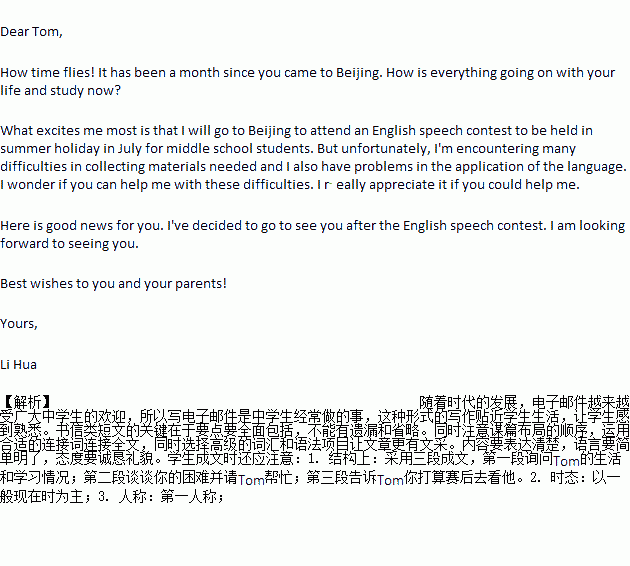题目内容
假设你是李华,你的美国朋友Tom上个月来到北京学习。七月份你将去北京参加暑期中学生英语演讲比赛(speech contest),你在资料搜集、语言运用等方面遇到了困难。请根据以下要点给Tom写一封电子邮件:
1.询问Tom的生活和学习情况;
2.谈谈你的困难并请Tom帮忙;
3.告诉Tom你打算赛后去看他。
注意:1.词数:120—150;
2.可适当增加细节,以使行文连贯。
Dear Tom,
Yours,
Li Hua
练习册系列答案
 阅读快车系列答案
阅读快车系列答案
相关题目

